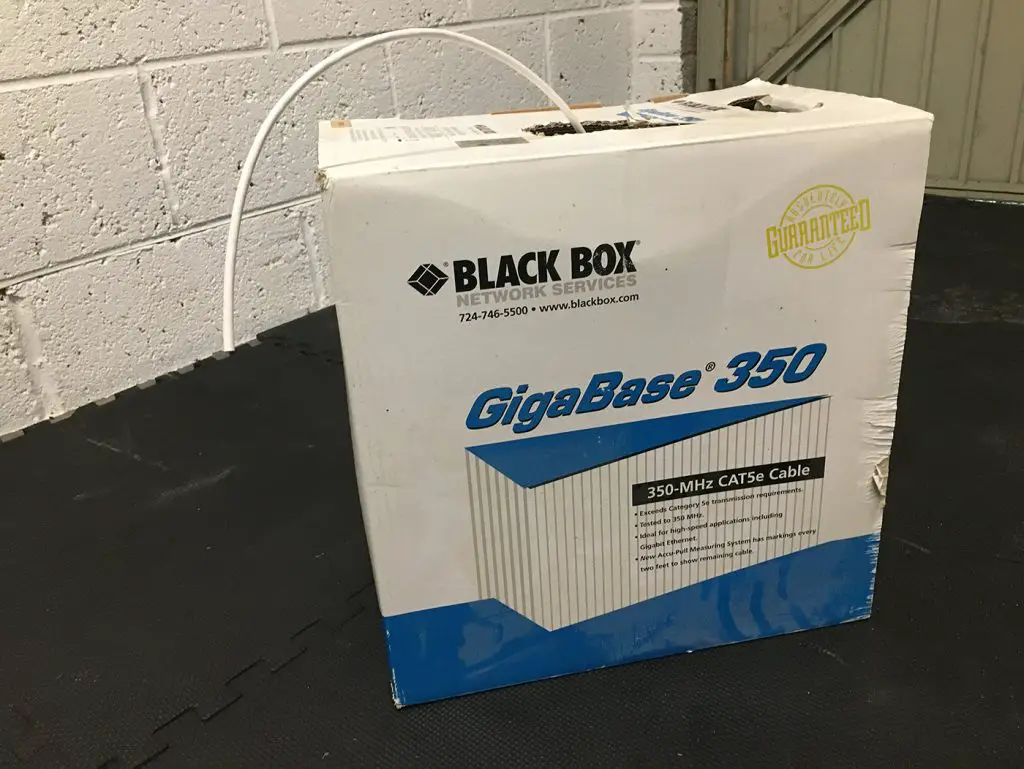Affiliate Disclosure: As an Amazon Associate I earn from qualifying purchases.
Many people will want to use Ethernet when setting up their home network as it is generally quicker and more reliable than Wi-Fi, but can Ethernet cables be considered a fire hazard?
Ethernet cables are classified as low voltage which makes them unlikely to cause a fire. Even Ethernet cables that carry Power over Ethernet only use 48 volts which is considerably less than other electrical appliances found throughout the home.
Thanks to the low voltage being used, even a damaged Ethernet cable is seen as low risk for causing a fire, but that’s not to say it should not be replaced.
Do Ethernet Cables Carry Electricity?
Ethernet cables are responsible for transferring signals from one device to another. These data signals themselves are considered to be electrical but do not supply power as such.
The same Ethernet cables can, however, be used to transport a more significant amount of power to certain devices.
This is referred to as Power over Ethernet, or PoE, for short.
Power over Ethernet can be incredibly useful to power those devices with smaller power requirements, like a wireless access point, as they will not require a dedicated power supply.
The Ethernet cable connected to it will carry both the power and data it needs to perform its function.
Power over Ethernet works by injecting a voltage of around 48 volts into the Ethernet cable. This small amount of power is enough for the PoE device to work efficiently, whilst also keeping it safe to use.
Realistically, only the Ethernet cable that has Power over Ethernet injected into it would be considered to carry electricity.

Are Ethernet Cables Considered a Fire Risk?
Although there is a possibility for anything carrying some form of electricity to cause a fire, Ethernet cable is considered to be low-risk thanks to the voltage that it carries.
Even those cables with PoE injected into them carry less voltage than other appliances found throughout the home, so using them shouldn’t be a concern.
Something to note is that although they are unlikely to cause a fire, the non-standard Ethernet cables, like those that are especially flat or thin, can get warm when using Power over Ethernet.
For this reason, these types of cables should be reserved for when PoE is not required.
Is a Damaged Ethernet Cable a Fire Hazard?
If a fully functioning Ethernet cable is very unlikely to cause a fire thanks to its low voltage, where do you stand with an Ethernet cable that is damaged?
Even a cable that is worn and perhaps has some of the copper wire exposed is unlikely to cause a fire; again, because of the voltage used.
That being said, it isn’t a good idea to continue using an Ethernet cable when you know it is damaged.
If you notice any damage, no matter how minor, it is recommended that you replace it.
Although an Ethernet cable that has part of its jacket frayed is unlikely to be the direct cause of a fire, it could potentially help a fire caused elsewhere to spread further.
In addition to replacing damaged cable as soon as possible, you can help mitigate the chances of a fire spreading further by using an Ethernet cable that has plenum-rated plastic shielding.
This is used as a fire retardant on the cable itself and can help prevent the further spread of a fire that has originated from elsewhere.
Recommended Ethernet Cables
If you are looking for some Ethernet cables for your own home network, here are some recommendations.
- Monoprice Cat6a Cable – This cable is half the thickness of a regular Cat6a cable and comes in a variety of lengths and colors.
- Vandesail Cat7 Cable – This cable delivers the best performance with speeds up to 10 Gbps and supports a bandwidth of 1,000 Mhz. The flat design is also space-saving.
- Fast Cat Cat5e Bulk Cable – Buying in bulk and making your own Ethernet cables could save you money in the long run and offers more flexibility around the length of cable you need.
